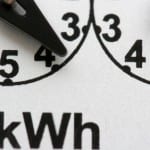While the Napthine government toys with the idea of scrapping Victoria’s energy efficiency target, the NSW government has revealed plans to expand its own efficiency scheme – to build on the projected $1.4 billion it is already projected to save NSW homes and businesses over the next decade.
NSW environment minister Rob Stokes announced on Tuesday that the state’s ‘Energy Savings Scheme’ would be extended out to 2025 and expanded to help homes and businesses save on gas, as well as electricity.
Until now, the scheme has focused on lowering the cost of products and services that save electricity, such as ultra-efficient LED lights, which has the flow-on effect of cutting household and business energy consumption, reducing the need to spend on infrastructure, and lowering bills for everyone.
As well as extending it to include efficient gas appliances, the Baird government’s revamp of the scheme will also significantly improve its design, as well as overhaul its administration to lower costs and increase benefits.
Other Australian states have not been so forward thinking on energy policy, however, with the Liberal Victorian government only recently backing down on plans to scrap the state’s efficiency scheme, after a community backlash and pressure from the opposition.
The Napthine government had announced in May that it would introduce legislation to dump the Victorian Energy Efficiency Target (VEET) – which is estimated to have saved participating households and businesses an average $109 a year on electricity bills and created 2000 jobs.
In direct contrast to NSW, the proposed changes to the Victorian scheme had intended to cut short the VEET program, running it for one more year only, and cutting its target from 5.4 million tonnes of CO2 abatement to 2 million in 2015.
“The NSW government has become Australia’s leader in energy policy,” said acting Energy Efficiency Council CEO Luke Menzel, in response to the changes.
“While other governments are making policy on the run, the NSW Government is making steady, sensible decisions to keep energy affordable.
“Energy efficiency has become a major global issue, which is why it’s being discussed at G20. A recent report by the International Energy Agency found that energy efficiency has become the world’s ‘first fuel’,” said Menzel.
“Australia faces some real challenges. Electricity bills shot up in recent years, mainly due to the cost of building poles and wires. Now gas prices are doubling, which could have a huge impact on manufacturing. The NSW government is rising to this challenge by helping homes and businesses save energy.”










